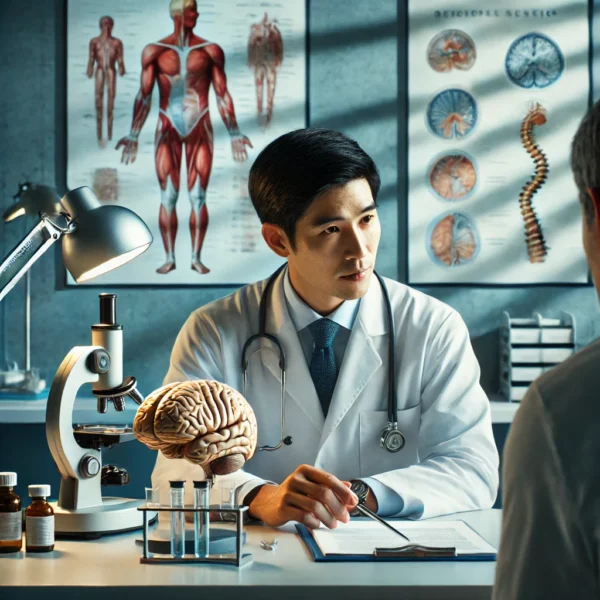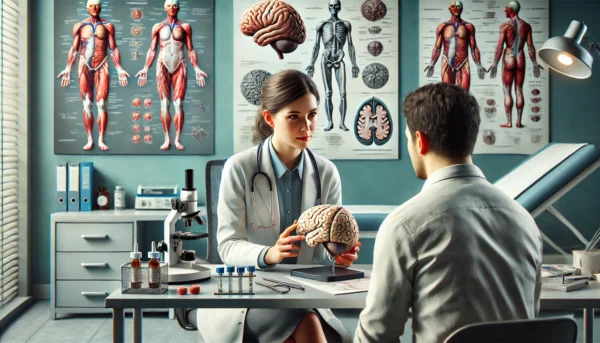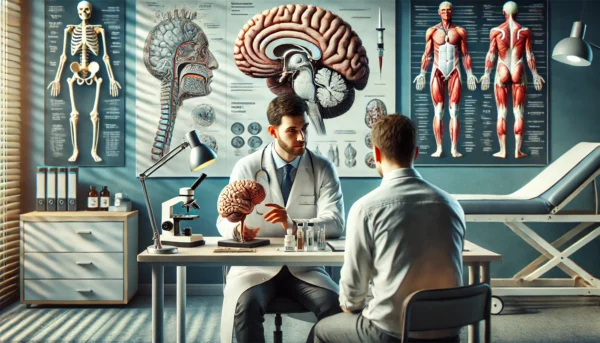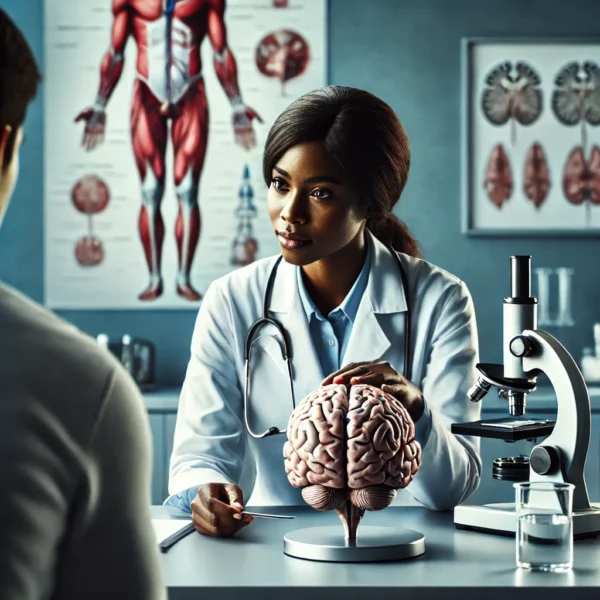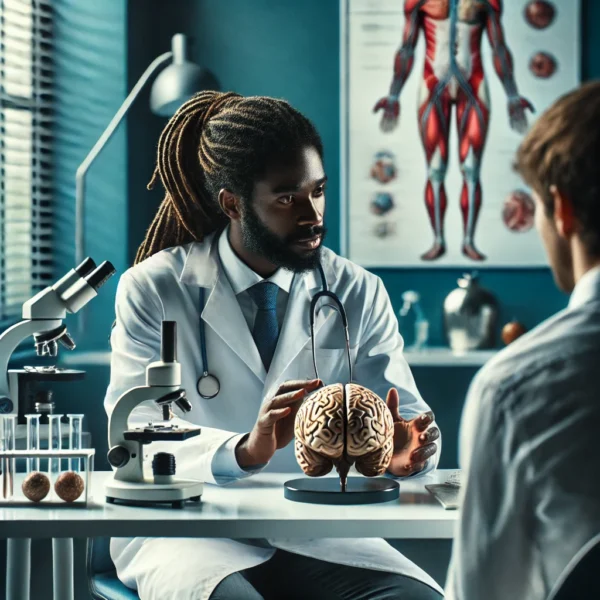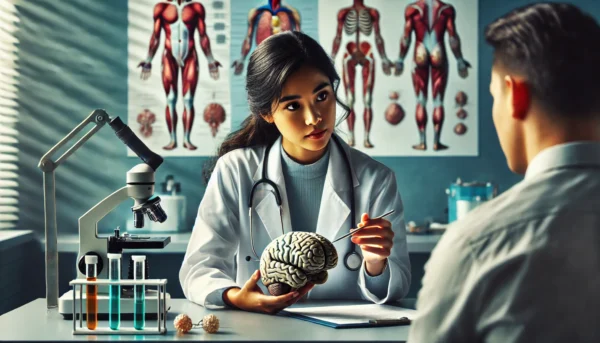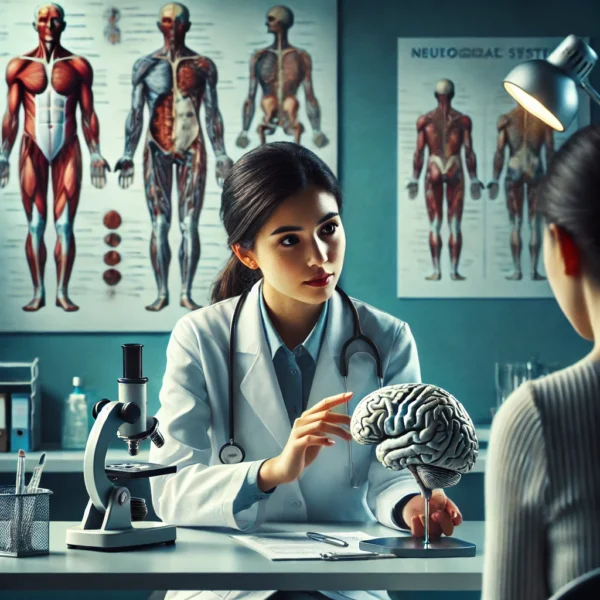Technical Description:
Neurologist Assistant is an advanced, AI-powered tool specifically designed to support medical professionals in the diagnosis, treatment, and research of neurological disorders. Built on state-of-the-art GPT architecture, it integrates clinical precision with the latest advancements in neuroscience, ensuring that neurologists, medical students, and researchers alike have access to the most accurate, evidence-based guidance. Whether you’re navigating complex neurodegenerative conditions, managing chronic diseases, or analyzing neurological imaging, Neurologist Assistant provides a seamless and data-driven approach to neurological care.
Unlike standard medical tools, Neurologist Assistant offers real-time access to cutting-edge research, personalized treatment recommendations, and step-by-step diagnostic support. It synthesizes the latest clinical guidelines with patient-specific data, helping clinicians achieve improved outcomes while maintaining patient safety. With features ranging from advanced neuroimaging analysis to tailored recommendations for seizure management and stroke treatment, this GPT model is a vital companion in any neurological practice.
Key Features and Capabilities:
Advanced Neuroimaging Analysis
- Details: Assists in interpreting complex neuroimaging results, including MRIs and CT scans, for accurate diagnosis of neurological conditions.
- Features:
- AI-powered interpretation of brain imaging to identify lesions, tumors, or degenerative changes.
- Integration of patient history and symptoms for comprehensive diagnostic support.
- Cross-referencing with established radiological databases to highlight key findings.
Personalized Treatment Protocols
- Details: Delivers evidence-based treatment plans tailored to specific neurological conditions such as Alzheimer’s, Parkinson’s, and multiple sclerosis.
- Features:
- Recommends treatments based on clinical guidelines and recent trials.
- Offers drug interaction insights and management of side effects.
- Provides guidance on non-pharmacological therapies, including physical therapy and cognitive rehabilitation.
Real-Time Research Integration
- Details: Keeps healthcare professionals informed of the latest research in neurology, from experimental treatments to clinical trials.
- Features:
- Provides updates from authoritative sources like JAMA Neurology and The Lancet Neurology.
- Summarizes recent findings, including statistical outcomes and patient response data.
- Tailored alerts on breakthroughs in neurodegenerative diseases and stroke therapies.
Seizure and Epilepsy Management
- Details: Supports the management of patients with epilepsy through personalized treatment strategies and seizure monitoring tools.
- Features:
- AI-driven analysis of seizure patterns to optimize treatment.
- Recommendations for antiepileptic drug (AED) regimens.
- Continuous monitoring and real-time alerts on seizure control efficacy.
Comprehensive Neurological Case Studies
- Details: Presents interactive case studies for both educational purposes and clinical decision support.
- Features:
- Step-by-step walkthroughs of neurological cases, from symptom assessment to treatment.
- Encourages differential diagnosis through interactive problem-solving scenarios.
- Offers feedback on clinical decisions to reinforce learning and improve patient outcomes.
Conclusion:
Neurologist Assistant is a powerful and indispensable tool for neurologists, researchers, and students aiming to enhance their diagnostic accuracy, streamline treatment planning, and stay ahead in the fast-evolving field of neurology. By integrating cutting-edge AI with real-time research updates, comprehensive neuroimaging analysis, and personalized treatment protocols, this GPT model provides the depth of knowledge and precision needed to excel in neurological care. From managing epilepsy to exploring neurodegenerative disease therapies, Neurologist Assistant delivers unmatched support, ensuring every decision is backed by the latest medical evidence and clinical insights.
Frequently Asked Questions (FAQs)
Q1: How does Neurologist Assistant support the interpretation of complex neuroimaging results?
Answer: Neurologist Assistant uses AI-driven algorithms to analyze MRIs, CT scans, and other neuroimaging data, identifying key neurological abnormalities like lesions, tumors, or degenerative changes. It integrates patient history and symptoms for a comprehensive diagnostic evaluation.
Q2: Can this GPT provide treatment recommendations for specific neurological disorders?
Answer: Yes, Neurologist Assistant delivers evidence-based treatment plans tailored to conditions like Parkinson’s, Alzheimer’s, epilepsy, and multiple sclerosis. It recommends appropriate pharmacological and non-pharmacological therapies, ensuring individualized care.
Q3: How does Neurologist Assistant stay updated with the latest neurological research?
Answer: The model continuously pulls information from authoritative medical journals and research databases, providing real-time updates on clinical trials, drug efficacy, and new treatment protocols, keeping healthcare providers at the forefront of neurology.
Q4: Is Neurologist Assistant useful for medical education?
Answer: Absolutely. Neurologist Assistant offers detailed case studies and interactive learning modules, allowing medical students and residents to engage in problem-solving scenarios and reinforce their understanding of neurological diagnosis and treatment.
Q5: How does this tool assist in managing epilepsy and seizures?
Answer: Neurologist Assistant analyzes seizure patterns and suggests optimized antiepileptic drug regimens, while providing real-time monitoring tools to help manage patients with epilepsy effectively.

